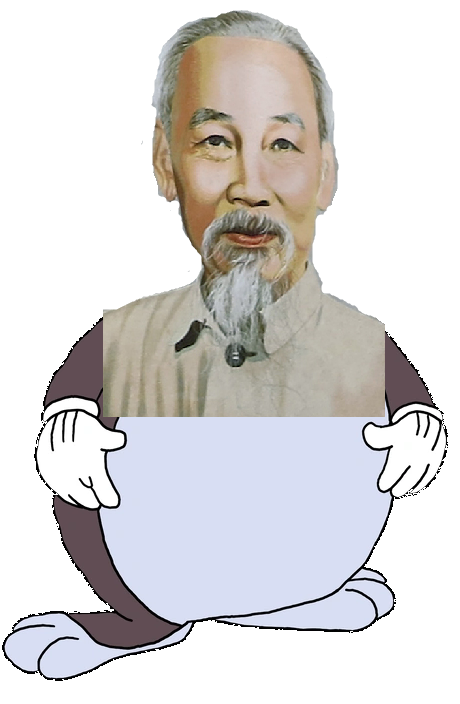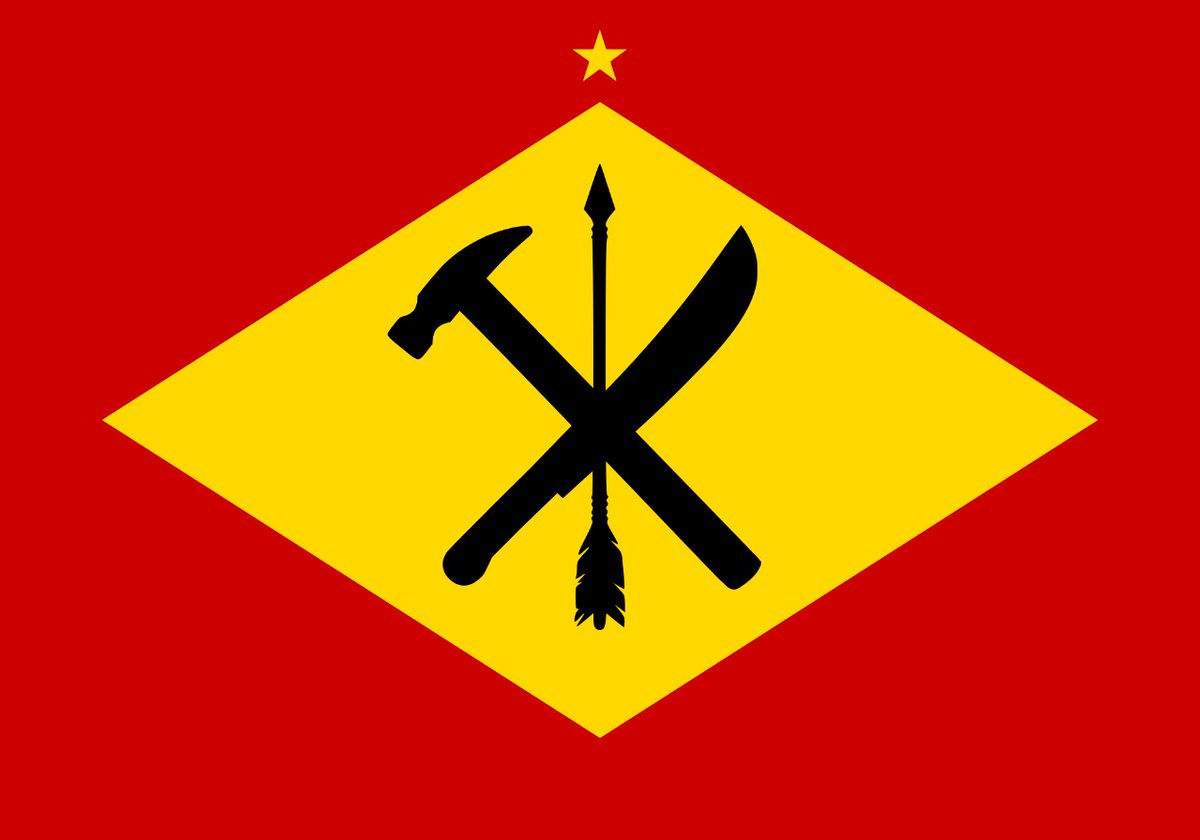This should be Deng and not Mao. Extremely lib, chauvinist, and ahistorical to be supporting Krushchev and presenting it as though China should have continued to acquiesce to a revisionist who literally desecrated Stalin's body.
Deng's own words on Khrushchev tells us all we need to know on that corn-obsessed traitor to the USSR.
Reporter: And Khrushchev?
Deng Xiaoping: Khrushchev? What good things did Khrushchev do?
Reporter: He denounced Stalin.
Deng: So you think that this was a good thing he did?
Reporter: More than good. I would say holy- for Christ's sake, more people were killed by Stalin than by the whole of the Cultural Revolution put together!
Deng: I am not sure about that. Not sure at all. Anyhow it's impossible to make such a comparison.
Reporter: So you prefer Stalin to Khrushchev in any sense?
Deng: I just told you that we shall never do to Chairman Mao what Khrushchev did to Stalin!
Reporter: And what about if I answer that in the West you are called the Chinese Khrushchev?
Deng Xiaoping: ( laughs very loud) Listen, in the West they may call me as they like, but I knew Khrushchev very well, I had to deal with him for 10 years, personally, and I tell you that comparing me to Khrushchev is a stupidity. Khrushchev only did bad things to the Chinese, Stalin instead did something good for us.
Shortly after our People's Republic was founded, Stalin helped us sincerely in establishing or modernizing the industrial complexes which would serve as the basis of Chinese economy. Of course, such helps were not offered free, we had to pay for them, but, when Khrushchev came to power, everything changed. Krushchev tore up all the agreements between China and the Soviet Union, all the contracts that had been signed during Stalin's time. Hundreds of contracts- Oh, this discussion is impossible! Let's do so: You keep your view, I keep mine, and we stop talking about Khrushchev.
Source: Transcript from this 1980 WaPo interview with Deng
:deng-salute:
Could be Deng or Mao doesn't matter. The irony of worshipping Deng then crying bout Khruschev lol :stalin-feels-good:
So you just posted this to make the the maoists/dengists/china supporters mad and then tell them how much they are coping after they respond?
Cool and very welcome man, Hit me with the "its just a meme bro im joking lol" but its pretty obvious what you are doing and why from this comment section. Maybe go to some more appropriate for discussion community, bring in your undouptly great understanding of history and theory and citations and own them there ?
Yes everytime I post a funny meme on the internet I got the nefarious ulterior motives of replying to a couple flippant comments with some of my own :joker-dancing:
ultraleft and inability to read anything longer than a meme, name a more iconic duo
Inshallah when I'm done learning English I can read your passionate essays
It takes 2 for a (sino-soviet) breakup
Also joke's on Nixon lmao
Edit: In a more serious note from a geopolitical perspective (it wasnt just ideological) China even tho it went to far in the other side had legitame missgeavings and fears of the Soviet Union leading into shitty ass foreign policy positions in the 70s. The Soviet invasion of Czechoslovakia in 1968 and the proclamation of the Brezhnev Doctrine sent alarm bells ringing in China. In the eyes of the Chinese the Soviet Union was now claiming they had the right to intervene in any communist country not following its brand of Marxism-Leninism. To China’s leaders, this was a clear threat directed against them.Especially after since relations were already sour after the late 50s and Kruschev's de-stalinization that was openly opposed both domesticaly and in the communist world stage by Mao. Party under Kruschev already looked down on the chinese communists and held a elitist view of their leading and deciding role on the world stage. Even under Stalin stuff were complicated tho easily better. A further complication was the Cultural Revolution in China. With its (correct) critique of Soviet ‘revisionism’, the mass movement had flamed anti-Soviet system sentiments among the Chinese leadership and populace.
For a specific example ,in consideration of the above factors, Mao and other Chinese leaders ordered the People’s Liberation Army to double down on their presence on the disputed Zhenbao Island and in the general borders, with small india-china rn style cross border clashes started happening. The Soviets struck back by launching an ambush against a Chinese border patrol in Xinjiang. Chinese intent was to serve as a warning to the Soviet Union that they cant and shouldnt try to have direct influence over the PRC. That they werent to be what countries of the eastern bloc were in relation to the USSR, and not to provoke a general war. The chinese revolution was largely one of anti colonial national liberation after all and the scars and fears of foreign influence run deep. Thus, Chinese leaders were shocked when news reached them of Soviet military, and more ominously, nuclear build-up…It seems that there was genuine discussion among revisionist Soviet military and political leadership of a nuclear strike to china .As Soviet archives on events in 1969 remain closed, historians can only rely on testimonies from Soviet officials. The Soviet diplomat Arkady Shevchenko claimed:
The Politburo was terrified that the Chinese might make a large-scale intrusion into Soviet territory which China claimed…From others I heard that the Soviet leadership had come close to using nuclear arms on China. A [Foreign] Ministry colleague who had been present at the Politburo discussion told me that Marshal Andrei Grechko, the Defense Minister, advocated a plan to “once and for all get rid of the Chinese threat.” He called for unrestricted use of multi-megaton bombs…Fortunately, not many military men shared Grechko’s mad, bellicose stance…I talked with one of Grechko’s colleagues, [General] Nikolai Ogarkov…[who] took a more realist view of the prospect of war with China…[He proposed] the alternative…to use a limited number of nuclear weapons in a kind of “surgical operation” to intimidate the Chinese and destroy their nuclear facilities…Disagreements about bombing China stalemated the Politburo…for several months.
Senior Counselor to the USSR United Nations Delegation, Valentin Karymov, stated that every kind of contingency plan was considered, including preventive strikes. Lev Deluisin, a China specialist in the Foreign Ministry, had this to say:
Discussions occurred about whether to carry out a preventive strike against all of China’s nuclear complexes so as to resolve the problem…fortunately, the government rejected these options, but these opinions were expressed.
Mao and the Chinese leaders were horrified. In August, the war scare in China reached its fever pitch. On 27 August, the CPC Central Committee issued an urgent order for the large-scale evacuation of Chinese population and main industries from big cities, while calling upon workers and residents in big cities to begin digging air-raid shelters and stockpiling everyday materials to prepare for a nuclear strike. On 28 August, an urgent mobilisation order was issued to China’s border provinces and regions. Party committees, government agencies, military commands, and ordinary citizens in provinces adjacent to the USSR were urged to be prepared for a large-scale Soviet surprise attack, while PLA forces along the Sino-Soviet border entered an emergency status of combat readiness.
Both sides recognised that drastic action was needed to stop escalation. This was achieved in a meeting at Beijing airport between Chinese Premier Zhou En-lai and Soviet Foreign Minister Kosygin on 11 September. This meeting effectively ended the phase of military build-up between the USSR and China, although the rattled Chinese leadership continued to issue emergency orders until mid-October 1969. It was in this atmosphere of fear that Mao started to see the USSR as China’s “main enemy”, and the seeds of a Sino-American rapprochement were planted.
This is major an example of the context behind china wanting to do away with soviet influence anywhere near them. Tho there are other similarly important factors
Damn I had no idea the relationship between the Soviets and Chinese was this hostile. Thank you!
you guys really need to stop interpreting history like a fucking soap opera
:fedposting: "Basically, their national interests came into conflict with each other. Socialism in 1 country ftw" :fedposting: "You can't subtract mao's contributions to mzt from being a suboptimal leader. either you have to worship him from his toes to his hairline or you have to post about how bad he is online. this is not an either/or"
No I really am. Posting so powerful it makes you imagine things I said :cia:
Nikita Khrushchev: The difference between the Soviet Union and China is that I rose to power from the peasant class, whereas you came from the privileged Mandarin class.
Zhou: True. But there is this similarity. Each of us is a traitor to his class.
Lol lenin was so stupid siding against comrade Kautsky, hasn't he ever heard of heckin left unity!???!??!!!!!!?!?!?????!!!!
I agree, Apartheid South Africa, France and the CIA are bad but anything to oppose Soviet Imperialism in Angola!
Everyone agrees that China's foreign during the end of Mao's life and post-Mao is awful. It still does not lessen Mao's criticism of revisionism in the Soviet Republics and the need to launch the Cultural Revolution.
I am very critical of Deng and sympathetic to Maoism, I probably was being too sectarian so I'll edit it out
You can't seperate his foreign policy from the rest of ideology. Even if the material conditions were similar enough for a "cultural revolution" to happen in the USSR, it was a disaster that led to an even swifter victory of the capitalist roaders within the Chinese party anyways. Mao had no real alternative to them (there arguably wasn't one), and they won. Can rage about it or whatever but the flow of history goes on, time to move on.
You can’t seperate his foreign policy from the rest of ideology
Of course you can. I can perfectly seperate Mao Zedong Thought and its value and contributions to marxism and leninism with whatever foreign policy brainworms arose from a spicific complex geopolitical relationship between two great powers at a specific point in history that can be analysed into a hunded vectors .If you cant thats too bad for you. And if you want to pin it on being Mao's specific failed decisions and dumb cringe positions then whatever be my guest. Just claiming that they are inseperable from the actual theoretical underpinning of Maoism and specific points in his writtings and were flowed from there doesnt make it true. And if you arent claiming that then you can just seperate them like i did.
Also its very clear that you posted this to have struggle sessions and "own" people and then go around telling them how much they are coping. Dunno if this should be welcome in the community
They said "Mao was right", that's obviously related to the foreign policy referenced even if they try to say "oh well everyone knows his foreign policy was bad" to make a distinction. I posted a meme cuz it was funny and replied to some comments, you can quit projecting.
and what i commented had nothing to do with the person you were replying to. I just responded to a specific dumb general statement in your comment :mao-wtf:
What's with all of the quality effort posts here? This is the may-may place not historical essay-writing place!
Try harder to be funny you libs! :FrogPog:
What was the real break between the soviets and China? Like most of what I hear is just personal beefs between leaders, was it really that simple?
Also border disputes and resources ownership in central Asia. Stalin signed a massive friendship treaty with Mao after the civil war which gave a large amount of economic aid but in return also gave huge natural resource concessions to the Soviets. Like even the imperial powers of the last century couldn't secure a concession like this, for some years China was delivering 100% of their production of strategic resources like copper, rubber, or tungsten to the Soviets. It wasn't imperialism because they did get the chance to quickly industrialize off all that Soviet aid, but you could understand why China might feel like it was unfair.
There was also an ideological spilt with China calling Khrushchev revisionist and USSR calling China nationalists (both are honestly not so wrong). And issues with Soviet policy in South East Asia, particularly Vietnam.
Tbh even in light of the sino soviet split i havent seen much enemity from Chinese communists in retrospect towards that Stalin era of the USSR sending aid and most importantly technology,knowledge and experts sharing in probably the largest scale in human history in exchange for that natural resource dealing. I feel like the general sentiment was that it was benifitial for both parties more than not and an important part on what allowed the successes of the early years after the revolution
like having soviet nuclear subs/bases in their coastal waters
fucking Khrushchev.
the chinese wanted their own deterrents not borrowed soviet ones, especially in such a politically unstable time in the USSR
correct move
True, but technology sharing is a benefit that's going to diminish over time as you catch up, while giving up resources is a constant kneecap, and there's also the fact that a lot of the material they would need to take advantage of that new technology was being given away as part of the agreement. So they were giving up a constant stream of resources for diminishing benefits that they couldn't take advantage of in proper scale.
Krushchev was a revisionist who denounced Stalin and should have been shot. @toledosequel either loves cornman, is a yankee, or both.
There were serious differences in policy arising from the Kruschev thaw, and in the approach to the West (initially this was that the USSR was too friendly with the first world and was not sufficiently supporting of decolonial efforts). There were also geopolitical things going on, mostly over India and Central Asia.
Obviously Maoism is closer to Stalin era ML than late-Soviet ML, and diverged increasingly on a number of theoretical points.
Finally both sides thought the other too cavalier with the nukes (with some justification, especially for China.)
But it was a dumb, horrible thing to do, on the part of both parties. We as leftists really have to have more tolerance of comrades being terribly, annoyingly wrong in our presence.
Basically, their national interests came into conflict with each other. Socialism in 1 country ftw :stalin-approval:
Communists justifiably being pretty pissed at Krushchev for denouncing stalin and supporting "dictatorship of the whole people"
If you're struggling in this session and then not organizing in your community or doing any other form of praxis you are officially more detrimental to the left than the average fox news viewer
I think the point of the meme is to say that Mao was on the wrong side of the Sino-Soviet split.
I know, i guess I'm just being irrational in placing the majority of that blame on Deng
Nixon forgot he was a Republican for about a month and became friends with China





